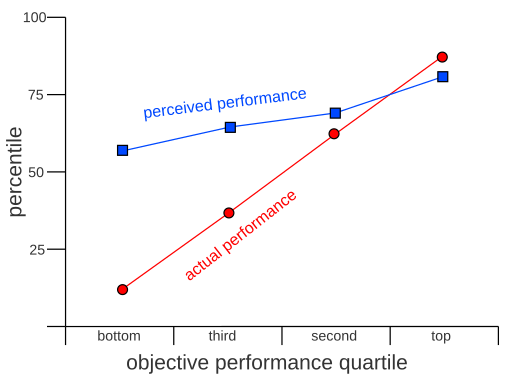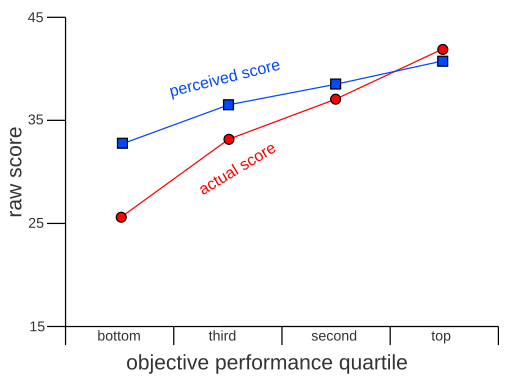
If it was primary research then it should have methodology.
But since the data is “cobbled together” from other sources, then it’s by definition secondary research (and should list those sources).

If it was primary research then it should have methodology.
But since the data is “cobbled together” from other sources, then it’s by definition secondary research (and should list those sources).


Based on what I know of Imposter Syndrome and the Dunning-Kruger effect, it seems you’re at your most competent when you feel like you’re at your least.
I’m not sure how you come to that conclusion, even with the internet meme version of the Dunning-Kruger effect. In the meme version, the incompetent think they are most competent, but I don’t think it follows that the most competent would think they are least competent.
I would summarize the actual Dunning-Kruger effect as: people tend to think they are a bit above average, and actual skill factors in only slightly. Worth emphasizing that these results are over groups of people, and individuals have extreme variation.
https://en.wikipedia.org/wiki/Dunning–Kruger_effect




I think transforming “it’s possible to think without language” into “language is not a tool for thought” is an overreach. Definitely a lot of our internal voice is post-thought, but crystalizing those thoughts into words can provide footholds for further thought. Some would argue it’s not possible to think through a complex issue without writing:
Maybe they could start them off with something easier, like Finnegans Wake